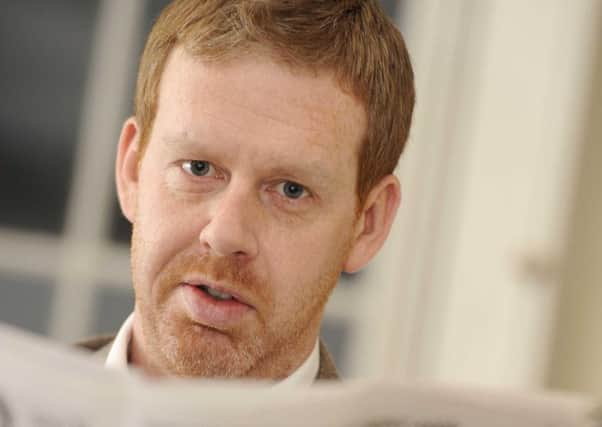Nick Freer: Start-ups must establish the right connections
This article contains affiliate links. We may earn a small commission on items purchased through this article, but that does not affect our editorial judgement.


My heart sank and so, just several minutes later, I was surprised to see Administrate CEO, John Peebles, standing in the school playground with a big smile on his face on a cold, dreich December morning.
• READ MORE: Technology news
Surprised on two levels, firstly because John doesn’t have any kids and secondly because I knew he was on tenterhooks like me waiting for the story to run. Getting your start-up covered by TechCrunch is, as one of our best known tech founders said to me once, like being sprinkled with gold dust and improves the chances of venture capitalists getting their chequebooks out.
Advertisement
Hide AdAdvertisement
Hide Ad“Dude, we’re in”, said John in his laconic American accent. He showed me his mobile phone with the story up on the site as if to prove it was really true.
“Oh, thank God”, I said before asking him why he was standing by a queue of primary three children.
“Patrick’s had to sort out a visa situation in Glasgow so he asked me to drop off his kids”, said John, referring to Administrate’s chief commercial officer, Patrick Flanagan.
• READ MORE: Scots tech start-up Administrate opens Beirut office
The Administrate story was a good one and had caught the reporter’s eye because there was an angle he liked – more interesting than the funding round news was the fact that John and Patrick had introduced a four-day working week and improved productivity. The opportunity to then be interviewed gave John the chance to talk about his time growing up in China in the nineties and how the Chinese had switched from a six-day working week to five days but productivity hadn’t dropped. The resulting story made for a great read.
TechCrunch’s European editor was in Edinburgh earlier this month, following similar visits this summer by Forbes and tech.EU. As someone embedded in the Scottish tech scene and with a decent level of knowledge when it comes to the media, I think these editorial fact-finding trips mark a sea change in how our ecosystem is being viewed from the outside looking in. I took the opportunity to ask all three editors when they were in town about what kind of stories are floating their boats these days and the dos and don’ts when it comes to making a pitch as a start-up.
It might sound like stating the obvious but pitches frequently fall short because they simply aren’t newsworthy enough. Start-ups think because they’ve raised some money, launched or improved a product or hired a senior executive that this equates to newsworthiness. The survey says… no. A pitch stands a better chance if you can combine these elements but you are still likely to need something else, some “extra sauce” as one of the tech editors put it. Like Administrate’s four-day week, Chris McCann’s snap40 securing Scotland’s largest ever angel investment round, or Two Big Ears’ virtual reality software being used in a Björk video.
Advertisement
Hide AdAdvertisement
Hide AdTwitter may have its issues on a corporate level but it is still a key working tool for tech and business reporters like it is for most journalists. If you’re a start-up CEO, you should be following key reporters at key publications and news outlets.
There will be limited chances to meet these reporters in the flesh – but when the opportunity does arise, maybe at a tech conference for example, you’ve got to grab it – so following them on Twitter, liking select tweets and responding with insights from time to time will pay dividends and help build your profile. They might just think of contacting you next time they’re writing a story.
If you’re after a bit of gold dust for your start-up, it’s certainly worth putting the time in when it comes to the media. It might just be your best route in to those hard to reach VCs and their fat chequebooks.
• Nick Freer is founding director of the Freer Consultancy